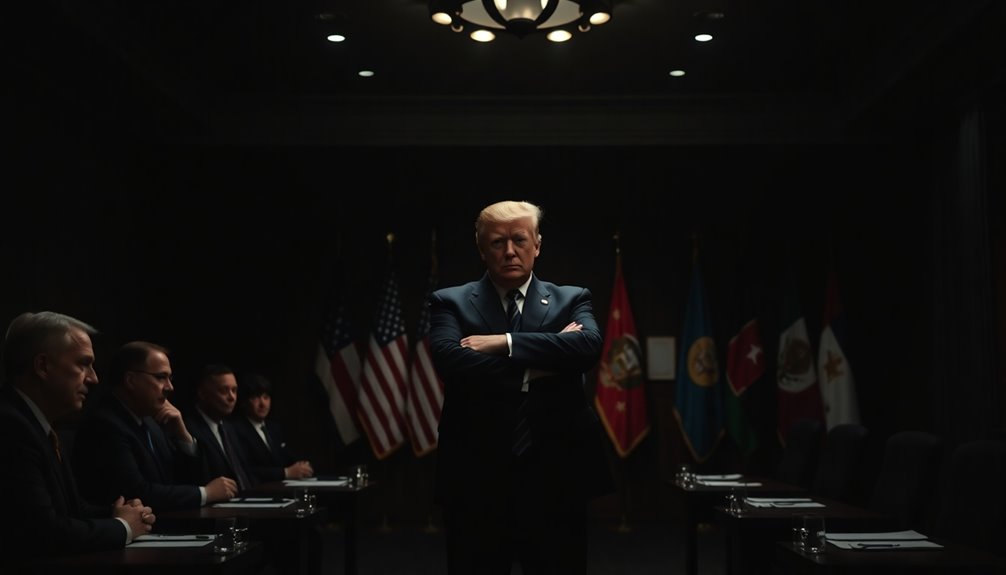
In recent years, the Five Eyes intelligence alliance—a critical partnership among the US, UK, Canada, Australia, and New Zealand—has faced unprecedented challenges, largely due to Donald Trump’s controversial policies. The alliance, rooted in historical cooperation since World War II, now finds itself under strain as Trump’s “America First” approach reshapes traditional alliances.
You might notice that the tensions have particularly escalated with Canada and the UK, jeopardizing the vital trust that underpins intelligence sharing among these nations. Economic pressures have intensified these challenges, largely due to Trump’s trade wars and tariffs. These policies have strained relations with Canada, a pivotal member of the alliance. The alliance’s intelligence sharing agreement dates back to 1946, emphasizing the long-standing nature of this partnership.
You may recall the heated trade disputes, which raised questions about Canada’s continued membership in this crucial partnership. With the added complexities of border security issues, the fabric of the Five Eyes alliance appears increasingly frayed. Trump’s radical shifts in foreign policy have unsettled traditional allies, prompting concerns about the future of cooperation in intelligence matters.
His rapprochement with Russia sparked discontent within the alliance, leading to speculation around the potential expulsion of Canada—though such claims have been denied. You can sense the increasing discomfort among allies, as hostile rhetoric from Trump’s circle has strained Anglo-American relations, further complicating the alliance’s dynamics.
In addition, Trump’s early conflicts with the intelligence community have cast a long shadow over governance. By accusing these agencies of politicizing intelligence, he’s undermined trust that’s crucial for effective collaboration. When he prioritized loyalty over expertise in his appointments, you might’ve noticed that confidence within the intelligence community began to wane.
The frequent accusations of a “deep state” only amplified these tensions, creating an environment that hampers coherent decision-making. The geopolitical consequences of these developments are significant. You can observe how the instability in the Five Eyes alliance could compromise global security efforts, especially amid growing US-China tensions.
The legacy of the Cold War complicates the alliance’s navigation through this new geopolitical landscape, pressing it to adapt to external pressures like trade wars and territorial disputes. If the Five Eyes alliance fractures, the implications could ripple across the globe, affecting security and intelligence cooperation.
The very essence of what once made this alliance a cornerstone of international security is at stake, and you can’t help but wonder how these challenges will shape its future.









